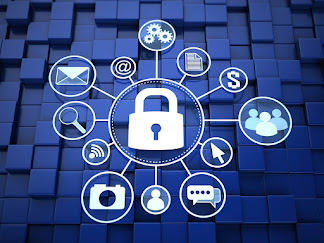PARENTAL CONTROL KEEPS CHILDREN AWAY FROM INTERNET NEGATIVITY
It is a topic that is still true. A child comes without an instruction manual. And if there is, it should currently have several volumes, one of them dedicated to the Internet. Or rather, to everything that must be avoided on the Internet. If we want to protect or educate our underage children. And here comes the parental control.
Whether you like it or not, the Internet has become a universal means of communication. An essential element to work, talk with your loved ones, have fun in your free time, learn and inform yourself. So whether or not you are familiar with the so-called network of networks, it is convenient to know what to avoid on the Internet. Or as the saying goes, extract the wheat from the chaff.The Internet is a great
opportunity for children and adolescents to socialize, learn, have fun, express
themselves and, in general, take advantage of the benefits it offers. But like
everything in life, you also have to take precautions.
Inappropriate content
The fact that there is everything
on the Internet is a good thing on the one hand, but it implies that not all
the content available on the Internet is suitable for certain ages. Hate
content, eating disorders, violent, sexual content.
The list is extensive, and
although as a general rule we would not look for certain content, a child's
curiosity knows no limits. And at times, this can be a problem.
The main access to inappropriate
content is the search engine, such as Google, Bing, Yahoo or DuckDuckGo. It is
the most visited tool in the web browser and is usually integrated into voice
assistants to answer any questions or concerns we ask ourselves. From the
search engines we can have access to any content, not always suitable for
certain ages.
The solution:
parental control, which allows you to block specific websites and / or searches
related to adult content.
Social media
Social networks have become one
of the most demanded Internet services, both by adults and by children and
adolescents. Precisely, minors seek to socialize at all levels, physically and
virtually. Hence the success of YouTube, Twitch, TikTok, Instagram or WhatsApp.
Social networks have their
benefits, such as meeting people from other parts of the planet or discovering
other skills, tastes or activities. But it should be borne in mind that not all
users of these social networks respect others, nor do they have good
intentions.
Fortunately, social networks,
under pressure from parents and guardians, have incorporated filters and parental
control options to limit time and to improve the privacy of children's
accounts.
No time for more
There is no golden rule. How much
time is acceptable to dedicate to a certain activity? To what extent should we
limit the time that minors spend in front of the computer or with the
smartphone in their hands?
The key is in the whole. Or
rather, if the time spent on one activity negatively affects the rest, it is
advisable to set limits. Do you get enough sleep? Do you spend the necessary
time studying and learning? Eat well?
We adults also have trouble
balancing our schedules. But, as such, we must make certain decisions. The
minor does not have to be able to make those decisions, he will do so over the
years, as he matures. Meanwhile, we will have to be the ones who agree with
them how much time they can dedicate to the Internet.
What's more, it is so much what
adults and minors do on the Internet that it is convenient to separate the time
that we necessarily dedicate (work or studies) from that dedicated in free time.
Games and applications, for everyone?
As with inappropriate content to
avoid on the Internet, not all applications are for everyone. And this happens
especially with games, especially those that are played online with or against
other players.
Parental
control allows you to block certain applications to prevent minors from
accessing them. On mobile devices, this means limiting access to certain social
networks or certain content apps such as Netflix or Spotify.
But more important is access to
games. On the one hand, we have the social component of many of these games. Do
we want our children to talk to strangers during an online game or do we prefer
that they do so only with friends and acquaintances?
On the other hand, it is
convenient to limit access to the micropayments that are made in many of these
games. From a suit for a character to an object or aids for the game. It is
convenient to educate children and adolescents about this type of strategies
used by video game developers and that, when used badly, involve excessive
spending of real money disguised as virtual money.
Systems to facilitate the task
The solution to all the problems
that we have seen and many others to avoid on the Internet in order to protect
and educate children and adolescents in our care, passes through communication.
Talk and educate to make the child understand the good and the bad of what they
will find on the Internet.
And the second solution, sometimes unavoidable, is through parental control. A solution that allows you to configure limits and blocks to avoid content or inappropriate practices on the Internet at certain ages and to learn more about the habits of minors on the network of networks.




Comments
Post a Comment